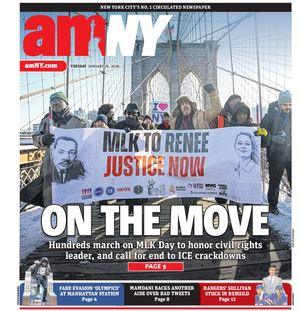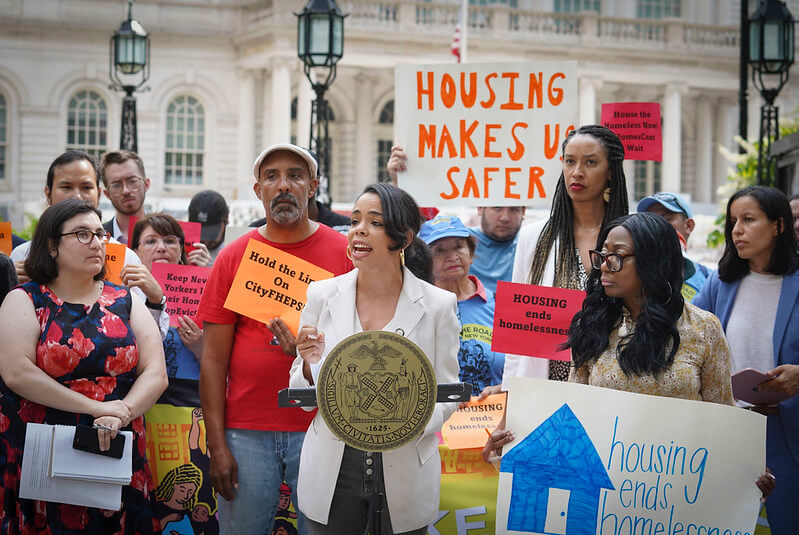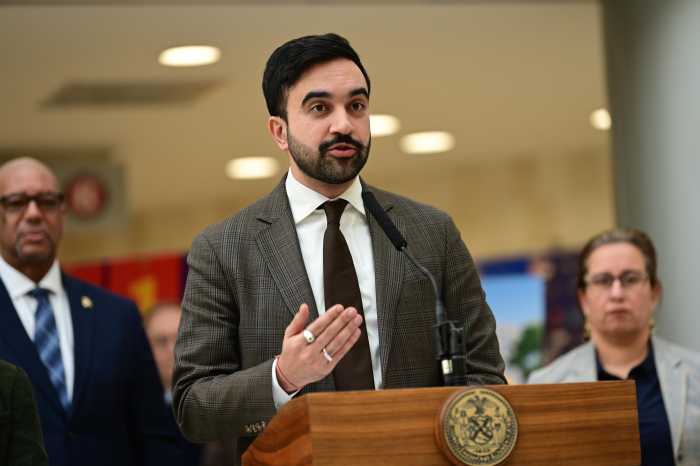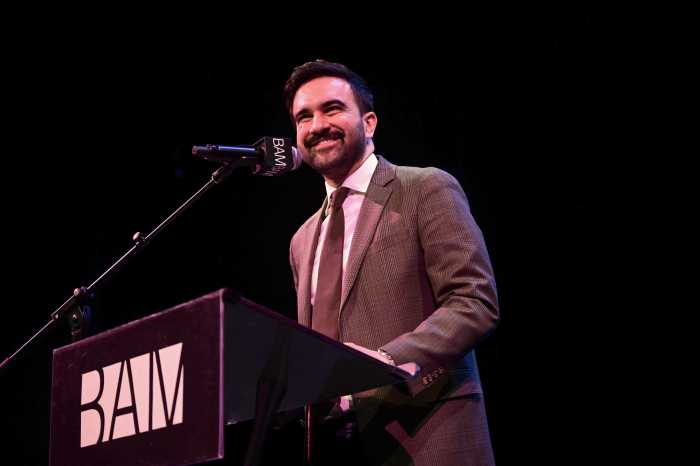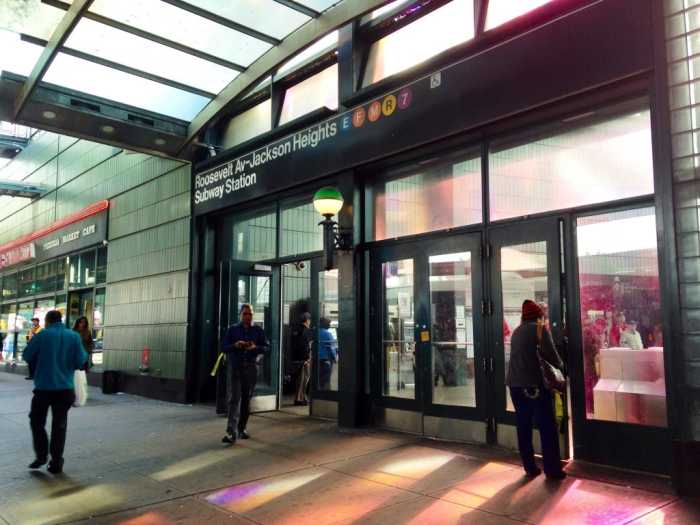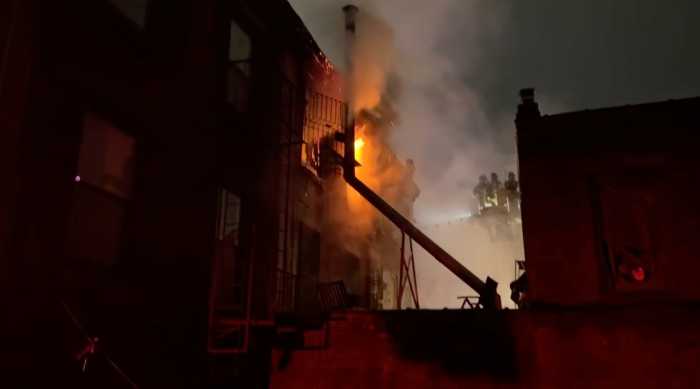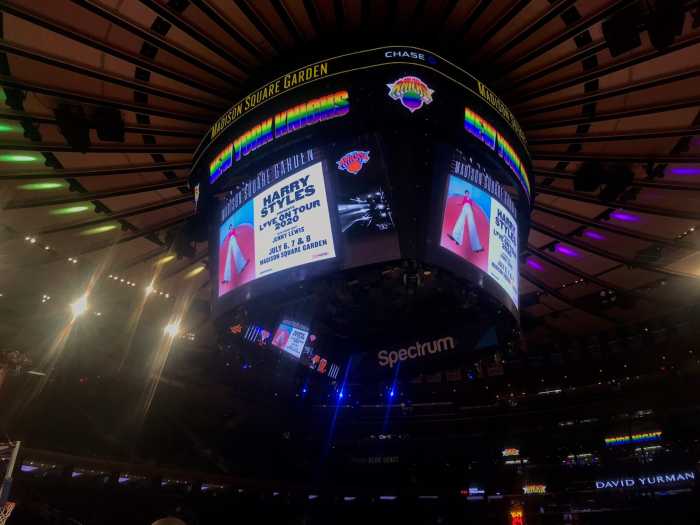The Eric Adams administration is bracing for a possible lawsuit by the City Council since it has no intension of implementing a series of recently passed laws that would expand access to housing vouchers for low-income individuals and those at risk of eviction, according to a letter reviewed by amNewYork Metro.
The legislation, which became law in July when the council overrode a veto by Adams, pertains to the voucher program — known as CityFHEPS — and must be implemented by a Jan. 9 deadline. The program was previously only available to New Yorkers living in homeless shelters as a means of helping them transition out of shelter by paying for their rental housing, but was expanded to ease the burden on the city’s overcrowded shelter system.
City Hall remains opposed to the legislation, saying it is too expensive and counterproductive.
In the missive, city Department of Social Services (DSS) Commissioner Molly Wasso Park, says the laws “cannot be implemented at this time” due to “substantial financial, operational and legal issues.” Those issues, according to the city, include a projected cost of $17 billion over the next five years; increased competition for a limited supply of open apartments; and a contention that the council does not have the “legal authority” to legislate on the program.
Mayoral spokesperson Kayla Mamelak Altus, in a statement, said the city cannot afford the hefty cost that comes with the new laws as it stares down a $7.1 billion budget gap over the next fiscal year.
“This legislation and its $17 billion price tag will make it harder for New Yorkers in shelter to move into permanent housing at a time when there are 10,000 households in shelter that are eligible for CityFHEPS and force more painful budget cuts onto working-class New Yorkers,” Mamelak Altus said.
But the council has fiercely pushed back on all of those points. It says its own projections show the program would actually cost $10 billion over the next five years, and that there would not be increased competition for apartments because the measures would keep people in their homes instead of entering shelters. Furthermore, the council argues it has legislated on CityFHEPS before — as recently as 2021.
Park made it clear that City Hall is preparing for the possibility of the council bringing legal action if the administration does not begin implementing the laws by Jan. 9. In that case, she wrote, the administration “may of course present additional arguments founded in law and public policy.”
City Council Spokesperson Rendy Desamours told amNewYork Metro that the council must wait until Jan. 9 to decide how to proceed, but in a statement, said that if City Hall chooses not to implement the laws it will be “at risk of legal action.”
“New Yorkers don’t have the privilege to choose which laws they follow, and the same standard applies to the mayor, who has a responsibility to comply with all local laws – there can be no double standard for City Hall,” Desamours said. “If the administration chooses to violate enacted laws and block New Yorkers from access to housing vouchers, it will only place Mayor Adams and the city at risk of legal action from the people most harmed – those who are homeless or at risk of becoming homeless being denied help by the mayor.”
Around the time the bills passed in the summer, Adams publicly floated bringing his own legal challenge against the council legislation, but that never came to fruition.
City Council Deputy Speaker Diana Ayala (D-Manhattan/Bronx), the prime backer of the legislation and a frequent critic of the administration, said she is “disappointed but not surprised” by Adams’ move. She charged the action is indicative of the administration’s broader posture towards working with the council.
“I just cannot wrap my head around this administration’s unwillingness to work with this council,” Ayala said. “And I think that oftentimes you hear the mayor saying that there are a lot of critics, but people are not stepping up to the plate and offering any help. And that is absolutely not true. The issue here is that they don’t respond well to criticism, and they don’t consider us equal partners.”
However, in Park’s letter, she insisted the administration made “numerous good faith efforts” to work with the council while negotiating the package of bills in the spring, including suggesting smaller-scale CityFHEPS expansions that took the city’s “fiscal obligations” into account.
The measures in question were vetoed by the mayor in June, after they passed the council in May. At the time, the mayor cited many of the same arguments for his rejection of the legislation as Park did in her letter, emphasizing its cost would be a financial burden to the city as it faces fiscal headwinds caused by the migrant crisis.
Ayala acknowledged that while the program may be more expensive for the city at the beginning, it will ultimately save money because less people will be entering the shelter system, which is pricier than the vouchers.
“In the beginning, it may be a heavier lift because now you’re paying for families that are in shelter, while also increasing the number of vouchers,” Ayala said. “But as we start identifying folks that are eligible and transitioning them out, it will become more cost efficient. So, you should start to see a downward trend in terms of what we’re spending on these families.”
